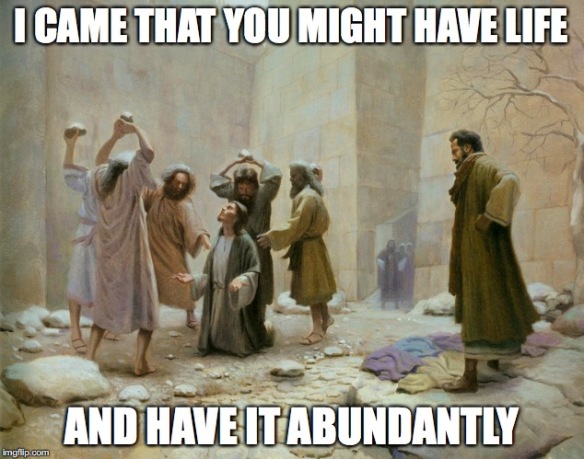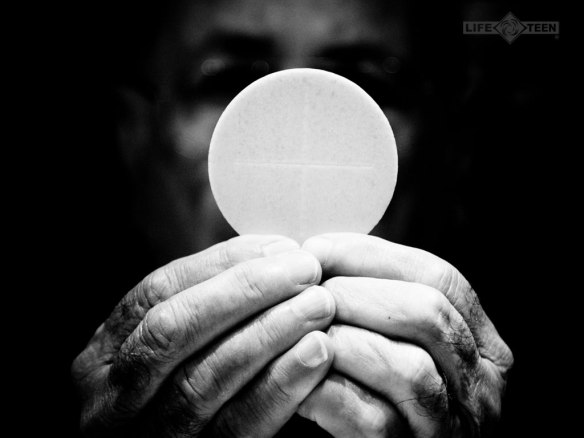
It is commonly held that Anglicanism has three Streams that make up one River. They are catholic, evangelical and charismatic. While this view is not without it’s criticisms, I would argue against it from the point of view that there is a perceptible 4th Stream which I will call non-denominational Anglicanism. While that sounds like a contradiction in terms it is nevertheless a reality in our day. First I will give examples of it, second I will ask what we can learn from it and third I will offer some suggestions for moving forward.
The 4th Stream Defined
Non-denominational Anglicanism is made up of those who are new to the Anglican way or who were not properly trained. As a result they have created a hybrid that is neither true to their previous traditions nor true to traditional Anglicanism. Hence the term non-denominational Anglicans. The following are only a few examples I have witnessed or been informed from first hand witnesses.
- A worship booklet containing over a page of the priest’s “corrections” to the Book of Common Prayer to make worship “more in line with Scripture.” Evidently no on told him that a priest does not have the authority to change the worship of the Church. Priests are officiants, not editors.
- Practical rejection of the doctrine of Real Presence by removing the tabernacle, refusing to pray the epiclesis (calling on the Holy Spirit to consecrate the Bread and Wine) and even offering life savors to children at Communion. That priest declared, “After all the real presence of Christ is with the congregation.” It is a different tradition entirely that teaches that Christ is only subjectively present in the Sacrament.
- Exchanging the great hymns of the Church for mind numbingly repetitious and theologically vacuous songs. Adding insult to injury many of those songs are written as solos that makes congregational singing more difficult even if the song is familiar. Music is not chosen to manipulate the emotions of the worshipers; it is chosen to offer high and holy praise to a High and Holy God. Secondarily our hymnody teaches and supports our theology.
- Replacing choirs with praise bands and turning the sanctuary into a stage. As one young couple so perfectly put it to me, “We live in Nashville. We are in the entertainment business. So we don’t want to be entertained at Church.” Also calling the lead musician a “worship leader” or “worship pastor” is a misnomer. In Anglicanism it is the priest who leads worship supported by other ministers, choirmasters, choirs and musicians.
- Rejection of or improper use of vestments. Clergy do not vest or refuse to vest in order to express their individualism. They vest to veil the man. They vest to represent the Church to Christ and Christ to the Church. They vest in the order of their office. Clergy should not be interested in dressing to gain street cred but rather in upholding the dignity of their calling and recognizing Who it is that they serve.
- Pretending that there is no true distinction between clergy and laity. This results in what one past bishop used to call “the creeping gangrene of participatory democracy.” I attended a meeting where a 4th Stream bishop attempted to make this argument by demeaning clergy and flattering laity. I realized later that in the end that is only real way to make such an argument. When you are wrong you go ad hominem.
- Rejecting the Sacraments of the Church. While there is a major difference between the 2 Dominical Sacraments (those ordained by Christ) and the 5 Sacraments of the Church, the later 5 are still Sacraments. The former are necessary for spiritual life while the later are for the up building of the Church. They too have an outward and visible sign that signifies an inward and spiritual grace. Hands laid upon the head of the repentant sinner signifies Christ’s absolution. Hands laid upon the head of a confirmand with anointing with oil, signifies the reception of the Holy Spirit. Hands laid upon a couple imparts to their marriage the blessing of Christ and His Church. Hands laid upon a candidate sets him apart for holy orders. Hands laid upon the sick with the anointing of oil, represents the presence of the Holy Spirit to make them whole. In short, these are not empty symbols rather they are conveyers of grace.
- Creative ceremonial and ignoring rubrics. This list could go on for pages and pages. While it could sound petty to argue for learning proper ceremonial and following the rubrics of the Prayer Book, it is not. It is through ceremony and symbol that we retell the story. When we change or ignore the ceremony and symbol we are in danger of telling the wrong story. For example we use one cup and one paten for the consecration because it is a sign that we are one Body in Christ. What we may not do is fill the altar with chalices nor consecrate tiny individual cups for distribution. The latter would be particularly egregious since the symbol would shift from “one cup, one Body” to “it’s just me and Jesus.” Is that the story the Church wants to tell? Just as priests are not editors, neither are they choreographers. They must learn to dance the dance properly and then teach it to others.
Learning from the 4th Stream
4th Stream Anglicans are looking at Anglicanism through fresh eyes and that can be very helpful. There is a vast difference between keeping tradition and doing things simply because we have always done it that way. The questions that come from the 4th Stream force us to look again at why we are doing what we are doing and perhaps trim the fat. The danger of tradition is that it can create such a protective shell that it does not allow room for life and growth. There was a song we used to sing at my High School in Scotland. “O McTavish is dead and his brother don’t know it, his brother is dead and McTavish don’t know it, and both of them dead, and in the same bed, and neither knows that the other is dead.” I have witnessed more than once when tradition and a parish have become the McTavish brothers.
How do we move forward?
First we need to return to humility. I heard a 4th Stream bishop say, “I’m going to give the Prayer Book 5 years and then I am going to start changing things.” I thought to myself, “We have given it 500 years in its various forms and we like it just fine like it is.” There is a mentality afoot that this is THE enlightened generation and so we do not need to learn from our past. As Job said sarcastically to his critics, “Doubtless you are the only people who matter, and wisdom will die with you!” 4th Streamers need to ask their questions but they need to do so with a teachable spirit. And they certainly should not come to an historic faith with the goal of changing it. If in the end they find themselves incompatible with our beliefs and traditions then there is no shame in moving on to seek another tradition.
Those of the other 3 Streams also need to exercise humility. Each of us are doing the best that we know to do, otherwise we would be doing things differently. But there is a difference between doing things at my very best and saying that my way is the very best. The genius of Anglicanism is its breadth and so while one approach may not be your cup of tea, it does not necessarily make it wrong. It may just be that it is different. We need to frequently remind ourselves of Jesus words’ about the beam in our own eyes before we worry about the speck in our brother’s.
Second we should pray for the intervention of the Holy Spirit. Surely it is His will that we all grow into a greater unity. We have seen concrete examples of this in our lifetime. The REC has had its own version of an Oxford Movement and as a consequence has moved from being self described “Presbyterians with the Prayer Book” to being Broad Church Anglicans. I have participated in Benediction in a REC Cathedral and I have attended an REC ordination that was cope and mitre, smells and bells. These were reflective of their evolution to a more Anglican view of the Church as a divine institution.
Third, listen to each other’s stories. Those of us who served in The Episcopal Church learned some valuable lessons, much of which is what NOT to do. There is absolutely no need to repeat the mistakes of the past, particularly the mistakes that destroyed a once great Church. We are fools if we think that it can never happen to us. Additionally the 4th Streamers have important stories to tell and others would be wise to learn what put them on this journey. Often they have very creative ways of engaging their communities and we insular and introverted Anglicans have much to learn from them.
It is my sincere hope that one day the 4th Stream would find a home in one of the other 3 Streams and move from being non-denominational Anglican to simply being Anglican. Learning our rites and ceremonies, following the rubrics of the Prayer Book and embracing our theology will not destroy their healthy uniqueness. Rather their presence within the 3 Streams will serve to enrich the whole Church.


